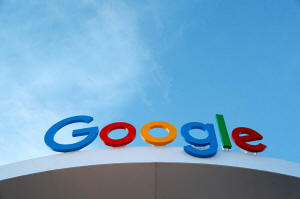Google trial wraps up as judge weighs landmark US antitrust claims
 Send a link to a friend
Send a link to a friend
 [May 04, 2024] By
Mike Scarcella [May 04, 2024] By
Mike Scarcella
WASHINGTON (Reuters) -Google and the U.S. Justice Department wrapped up
closing arguments on Friday over claims that the Alphabet unit has
unlawfully dominated web search and related advertising, in a case the
government contends could shape the “future of the internet.”
U.S. District Judge Amit Mehta in Washington for hours grilled both
sides with questions, probing whether competitive platforms such as
ByteDance’s TikTok and Meta’s Facebook and Instagram are competitive
substitutes for search advertising dollars.
Mehta said a central issue was platform “substitute-ability” for
advertisers, which the court must resolve. He will now begin preparing
to render a major decision on whether Google's conduct broke civil
antitrust law. He did not indicate when he would rule, but experts say
he could potentially order changes to Google's business practices.
Mehta also questioned whether Google assesses competitors’ pricing
before making its own adjustments. Google's advertising business is
responsible for about three quarters of its revenue.
U.S. government lawyer David Dahlquist argued that “advertising revenue
is what drives Google’s monopoly power today.”
Google has boasted it feels no real market pressures, Dahlquist said,
arguing that the company does not fear increasing its pricing or not
improving its products.

“Only a monopolist can make a product worse and still make more money,”
Dahlquist argued.
Google’s lawyer John Schmidtlein countered that Google’s share of U.S.
digital advertising revenue has steadily decreased. He touted the
advertising power of rival platforms ByteDance's TikTok, Meta’s Facebook
and Instagram, and Amazon.
Schmidtlein argued that Google is “constrained” by rival platforms
"where the eyeballs are," because advertisers know there are overlapping
audiences and can spend their dollars elsewhere.
He also asserted that Google was continually moving to innovate its
search advertising products. “If Google is a monopolist, why improve
anything? Why not just jack the price up?” he told the court. He later
argued that "Google has won with a superior product."
[to top of second column] |

The Google logo is seen on the Google house at CES 2024, an annual
consumer electronics trade show, in Las Vegas, Nevada, U.S. January
10, 2024. REUTERS/Steve Marcus/File Photo

The Justice Department has hammered away at Google in a trial that
started on Sept. 12, contending the search engine giant is a
monopolist that illegally abused its power to boost profits.
Witnesses from Verizon, Android maker Samsung Electronics and Google
itself testified about the company's annual payments - $26.3 billion
in 2021 - to ensure that its search is the default on smartphones
and browsers, and to keep its dominant market share.
Mehta also took up the government’s claim that Google intentionally
destroyed internal documents that were relevant to the issues in the
lawsuit.
The government asked Mehta to presume that Google deleted chats that
were unfavorable to the company.
Mehta repeatedly questioned Google's prior policies, which he said
left document retention decisions to its employees.
"They should have been preserved. Should there be some consequence
for what at a minimum was far from best practices?" the judge asked.
A lawyer for Google, Colette Connor, defended its data preservation
practices, calling them reasonable, and urged the court not to
sanction the company.
The case, filed by former President Donald Trump's administration,
was the first of several aimed at reining in the market power of
tech leaders.
Another case, against Facebook parent Meta, was also filed during
the Trump administration. President Joe Biden's antitrust enforcers
have followed with a second case against Google and cases against
Amazon.com and Apple Inc.
(Reporting by Mike Scarcella and Chris Sanders; Editing by David
Bario and David Gregorio)
[© 2024 Thomson Reuters. All rights
reserved.]
This material may not be published,
broadcast, rewritten or redistributed.
Thompson Reuters is solely responsible for this content.
 |